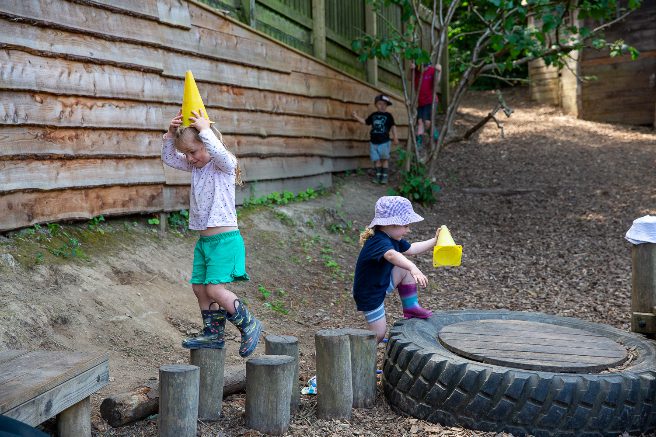A research project seeking to understand the potential of sharing stories about children's right to play.
This research seeks to understand the potential of sharing stories about how educators enable children's play as hopeful practices.
By 'hopeful practices', researchers Dr Jo Albin-Clark and Dr Nathan Archer are referring to "everyday experiences where children are enabled to be playful and autonomous."

With storying, the researchers will look at its potential for principled resistances to formalisation narratives that narrow pedagogy to limited developmental domains (Archer and Albin-Clark, 2022; Albin-Clark, Archer and Chesworth, Forthcoming). In contexts such as England, the curriculum occupies a contested space where active, spontaneous and sensory experiences can be restricted, thus marginalising children’s right to play (Albin-Clark and Archer, 2023). However, how resistances are enacted is under-researched (Archer, 2020; Moss, 2018).
In sharing stories, they plan to contribute to contemporary debates (Roberts-Holmes and Moss, 2021) to understand how collectivity generates alternative imaginaries.
Albin-Clark and Archer's interest lies with three of Froebel’s principles:
1) how childhood is valued in its own right
2) the central importance of play
3) how educators express their identity as both knowledgeable and nurturing
Because they wish to understand resistance and hope within everyday experiences, they will look at how embodied material conditions are sensed and embedded in particular spaces. To do so, they will employ arts-based approaches, including visual, audio elements as well as written accounts.
Creating a collective storying of principled resistances, aligns with Froebelian storytelling practices (Bruce et al., 2020). The researchers intends to connect narratives to re-imagine a hopeful future that embraces knowledgeable and autonomous professional identities.
The researchers plan to report on their findings in Autumn 2026.
About the research team
Dr. Jo Albin-Clark is a senior lecturer in early education at Edge Hill University. Her research interests include documentation practices and methodological collaboration and research-creation through posthuman theories. Throughout her work, teachers' and researchers’ embodied senses of resistances and subversions to dominant discourses have been a central thread.
Dr. Nathan Archer is an independent researcher in early childhood education.

